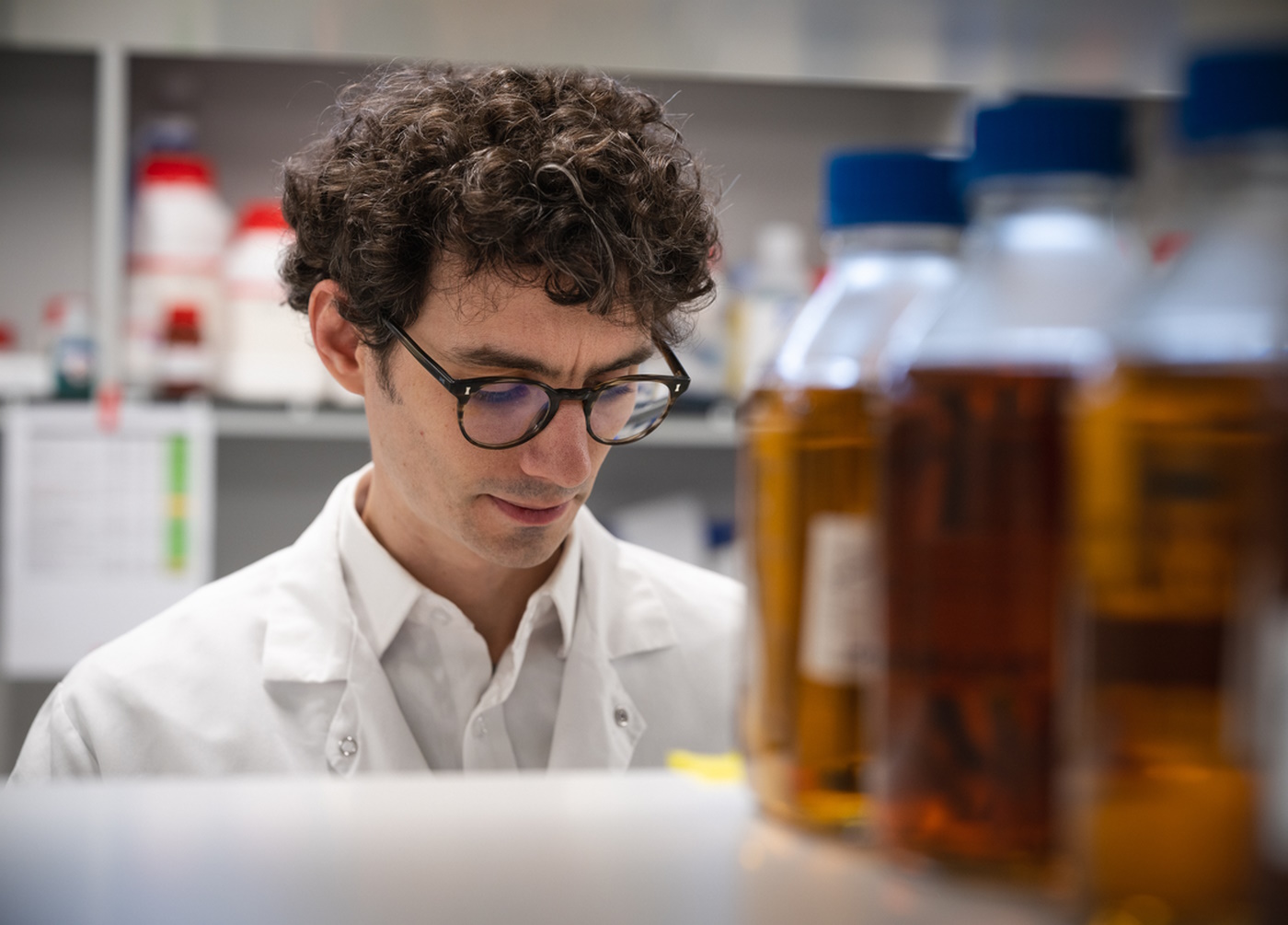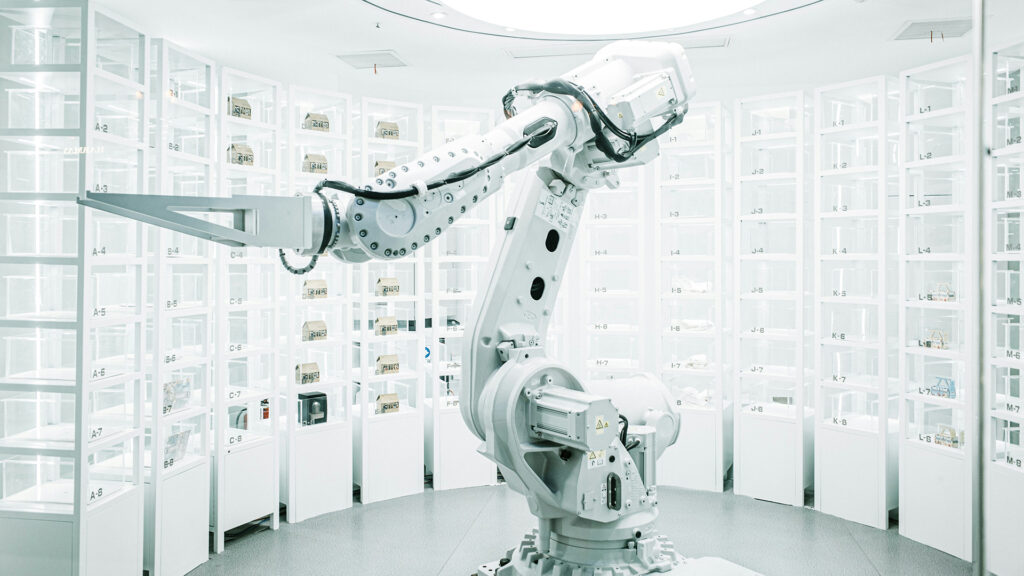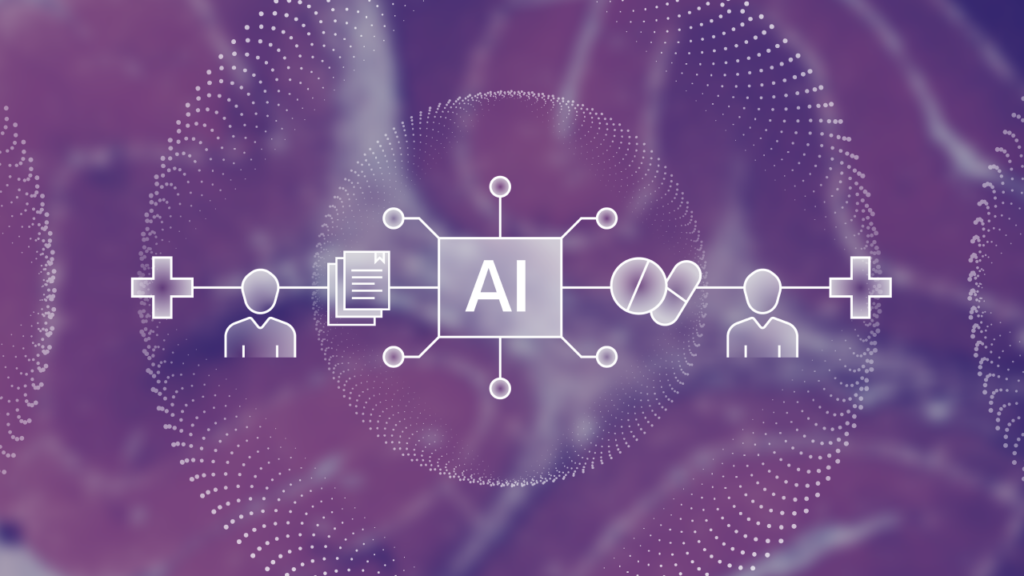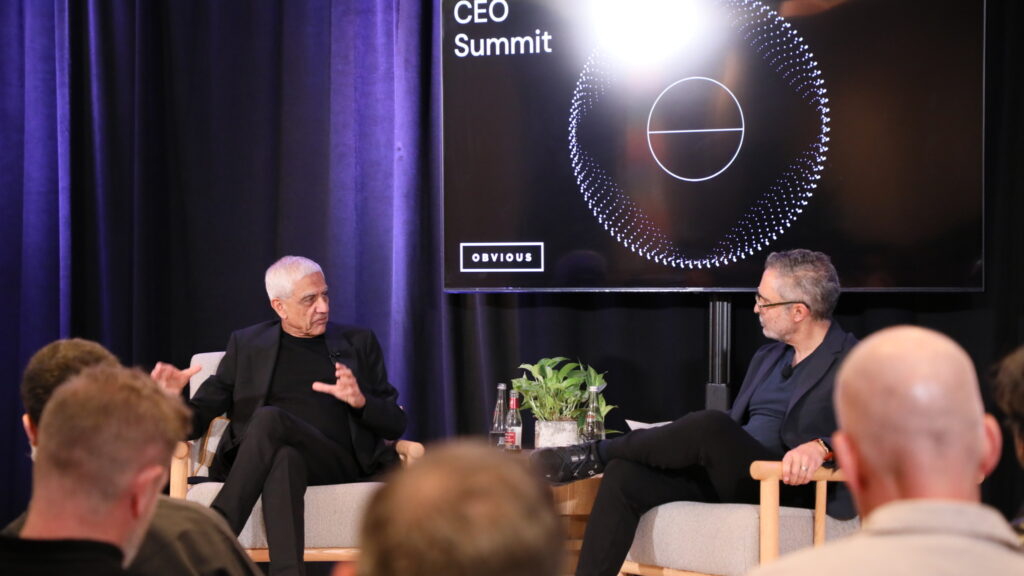Leading the AI Search for Protein Therapies
The big bold vision of LabGenius
Emily Brady |

The path that led James Field to found the biotechnology company LabGenius, began decades ago when he was a small boy playing in the back garden of his North London home. There, as he turned over stones and poked things with sticks, Field fell in love with the natural world. Later, he devoured science fiction, where he learned through people’s imaginations what might be done with biology someday.
These dual passions carried Field through to university, where he studied synthetic biology at Imperial College London. Synthetic biology is a technology that allows scientists to re-engineer cells in everything from humans to plants. By rewriting DNA, they can make nature do things it wouldn’t naturally do, like create drought-tolerant crops or breakthrough drugs to cure disease.
Field was all in.
“The idea was that you could write synthetic DNA that encodes for new biological systems and cook them up and test them,” he recalls.
But after his early experiments failed to deliver, Field had a realization.
“Biological systems are inherently too complex for the human brain to grapple with,” he says. “And that’s when I started this journey. How can we use technologies like evolution in conjunction with modern technologies like machine learning to discover new biological matter?”
The answer is LabGenius. Field founded the startup in 2012 while working on his doctoral thesis. Based out of a converted cookie factory in South East London, LabGenius is powered by a team of 50 drug hunters, robotic automation experts, data scientists, and software engineers. Their goal is to discover new protein therapeutics using AI.
The promise of protein therapeutics
Protein therapeutics represent a massive category within the pharmaceutical industry. Seven of the top 10 best-selling drugs today are protein therapeutics. And around 25% of the $1.4 trillion in global pharmaceutical sales are biologics (protein therapy, gene therapy, cell therapy).
The team at LabGenius is focused on developing new antibody-based proteins to treat cancerous tumors. Proteins are what Field describes as the “doing molecules.” They do all of the work within a cell. Antibodies are proteins that evolved to help humans stave off disease by binding to specific foreign particles like viruses and bacteria. Discovering new antibodies is challenging because the possibilities are infinite—it’s like looking for a needle in a haystack.
“At LabGenius, we see antibody discovery as a search process. You have this infinite design space, which you know contains the right antibody but the question is, how do you search it? The way we’ve found to search that space is to combine high throughput experimentation with data science,” explains Field.
LabGenius stands out based on the sheer number of antibodies they can evaluate in a given time frame. In just 12 weeks, they can accurately predict how >28,000 novel antibody designs will perform in disease-relevant functional cell-based assays. For the specific use cases that LabGenius are looking at, they are able to evaluate an order of magnitude more antibodies than their closest competitor. This novel approach of using AI for high throughput drug discovery was first pioneered by another Obvious portfolio company, Recursion.
Removing bias and uncovering new possibilities
AI also allows LabGenius to remove human bias from the discovery process and uncover high-performing molecules that conventional methods are unlikely to find.
“Using a process called active learning, we can re-engineer antibody molecules so they can precisely interact with multiple receptors on the surface of a cell and determine whether it’s healthy or diseased,” explains Field. If the antibody determines that the cell is diseased, it then redirects the body’s natural immune system to kill it. Similar approaches by other companies have yielded drugs that are already helping patients.
LabGenius’ incredible capabilities lured Gino Van Heeke, PhD, to join as Chief Science Officer in 2021. Van Heeke, who has a long history in traditional antibody drug discovery including 20 years at one of the largest pharmaceutical companies, was originally skeptical of combining drug discovery with machine learning.
“But I’ve become a very serious convert,” Van Heeke says. “ I’ve seen things that as a scientist I would have argued against. This machine learning approach leads to solutions that as a scientist you would’ve never reached using rational thinking. And guess what? They’re the very best molecules we can find.”
It was the quality of the data that compelled CTO Leo Wossnig to join LabGenius in late 2022.
“If I look at the space of AI-based drug discovery companies, there are very few who create the right type and quality of data,” says Wossnig. “I think LabGenius is probably the only one who really has the ability to create data with this high throughput and these rapid cycle times.”
The big bold vision of LabGenius is to bring together machine learning, automation and synthetic biology to develop drugs that could not have been conceived in the traditional paradigm in order to help some of the most under-served cancer patients. From there, Field and his team have their sights set on infectious disease, inflammation, and beyond.



